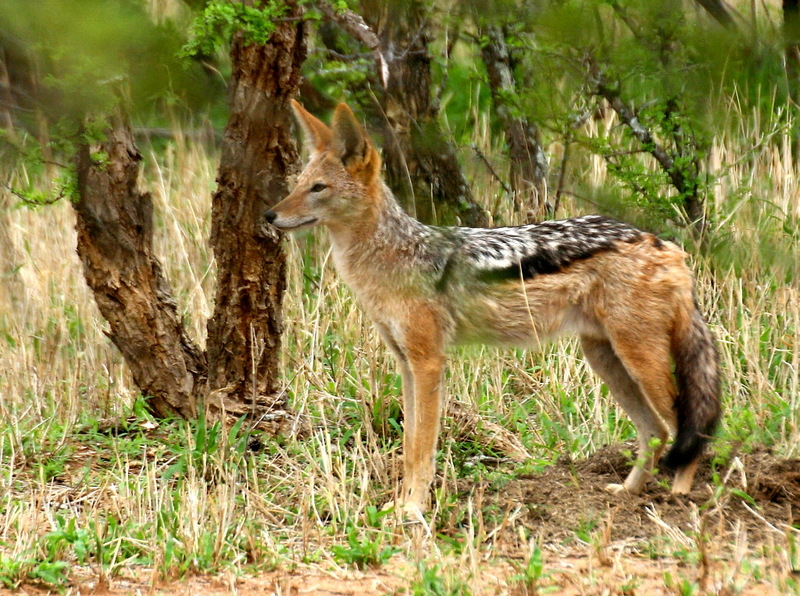|
| Query: black back | Result: 90th of 1144 | |
Black-backed Jackal (Canis mesomelas) - Wiki
| Subject: | Black-backed Jackal (Canis mesomelas) - Wiki
| |

| Resolution: 1024x763
File Size: 465579 Bytes
Date: 2005:11:18 07:43:48
Camera: Canon EOS 300D DIGITAL (Canon)
F number: f/8.0
Exposure: 1/500 sec
Focal Length: 400/1
Upload Date: 2007:09:04 01:43:12
|
Black-backed Jackal
From Wikipedia, the free encyclopedia
[Photo] Canis mesomelas (Deutsch: Schabrackenschakal in S??dafrika, English: black backed jackal in South Africa). Photo taken by Susann Eurich (http://de.wikipedia.org/wiki/Benutzer:Kilara), November 2005
The Black-backed jackal (Canis mesomelas) is an African canine with a fox-like appearance, tan fur, and a thick stripe of black and silver running down its back. They weigh anywhere from 15 to 30 pounds and are 45 to 50 centimeters at the shoulder. Males are usually larger than females.
Behaviour
Black-backed Jackals usually live together in pairs that last for life, but often hunt in packs to catch larger prey such as impala and antelope.They are very territorial; each pair dominates a permanent territory. They are mainly nocturnal, but Black-backed Jackals come out in the day occasionally. Their predators include leopards and humans. Jackals are sometimes killed for their furs, or because they are considered predators of livestock.
Diet
These jackals adapt their diets to the available food sources in their habitat. They often scavenge, but they are also successful hunters. Their omnivorous diet includes, among other things: impala, antelopes, fur seal cubs, gazelle, guinea fowl, insects, rodents, hares, lizards, snakes, fruits and berries, domestic animals such as sheep and goats, and carrion.
Reproduction
Black-backed Jackals have a 2-month gestation period. Each litter consists of 3-6 pups, each of which weigh 200-250 grams. At 8 months pups are old enough to leave their parents and establish territories of their own. Like several jackal species, the black backed jackal is typically monogamous.
Habitat
Black-backed Jackals occur in a wide variety of African habitats, such as open woodlands, scrubland, savanna, and bush. They can easily adapt to different habitats. They are quite common throughout their range, and have a low risk of endangerment.
http://en.wikipedia.org/wiki/Black-backed_Jackal
| The text in this page is based on the copyrighted Wikipedia article shown in above URL. It is used under the GNU Free Documentation License. You may redistribute it, verbatim or modified, providing that you comply with the terms of the GFDL. |
|
^o^
Animal Pictures Archive for smart phones
^o^
|
|

